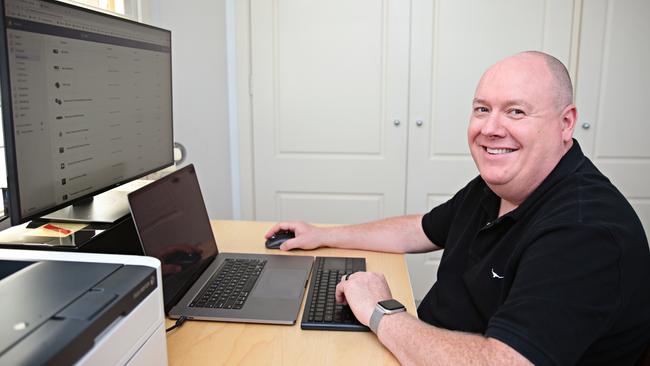How job seekers can get a new job fast during coronavirus pandemic
The coronavirus pandemic may have redued the number of vacancies and thrust thousands of people into unemployment, but it’s still possible for job seekers to get into a new role quickly.
SmartDaily
Don't miss out on the headlines from SmartDaily. Followed categories will be added to My News.
- How the Australian National Talent Registry will help jobseekers get work
- Sign up to the Australian National Talent Registry
Losing your job amid a global pandemic when so many other people are in the same situation can make many workers feel hopeless about their prospects.
But there are ways to get back into a job quickly, even when thousands of other people with similar skills may be vying for the same roles.
Randstad RiseSmart managing director Alison Hernandez says jobseekers need to be adaptable, open-minded and flexible about their next job, and seek professional advice to fill gaps.
“With anything in life, you’re not an expert in all things,” she says.
“You’ve got to put your best foot forward and (professional advice) can help you present your skills and knowledge.”
Grant Keogh, 44, lost his
IT leadership role at the start of the pandemic when his firm restructured. He was one of 200 workers who left in the first wave of redundancies, and struggled to find new work when competing with the volume of other applicants in the market. Keogh’s former employer provided outplacement as part of the redundancy, and he found the training sessions offered through this to be beneficial.

“The resilience training was pretty important and also the guidance from my career coach,” Keogh says.
“The secondary option of not just looking for work, but creating work to set up as a sole trader – that’s where my income is coming from now.”
He uses his skills to help small businesses, particularly in e-commerce and setting up programs to replace the need to do tasks manually.
Keogh works from home and says he is able to do more around the house to support his partner and their family.

Hernandez says there are several steps jobseekers should follow to fast-track themselves into a new job.
FORGET your job title and industry and focus on skills and abilities. “There’s still some COVID-related demand (for workers) in certain sectors,” she says. “People are making quite dramatic step changes, from one industry to another.”
NETWORK with others to uncover new opportunities. “You’ve got to get out there, even if it’s virtually, and you can connect virtually,” Hernandez says. “Join free webinars … and connect with the 20 other people in that.”
UPSKILL or re-skill, particularly if you are unemployed. “You have the time to think about upskilling and reskilling and there’s a lot of free and low-cost options out there,” she says. “It would really give people a sense of purpose, a sense of achievement, and to come out the other side more employable.”
ACCEPT temporary roles. “Don’t overlook short-term gigs and contracts,” Hernandez says.
“It’s a stepping stone to something – the best way to be employed is to stay employed. It might not be for the rest of your life, but you’re feeling like you’ve kept your skills up, your confidence up, and you never know who you’re going to meet.”
TAKE a lower salary than a previous role. “Many see a great role which is a fair bit less in terms of salary than their previous role and don’t take it, or see it as a step back,” she says. “Any step is a step forward. If in a year’s time you’re still waiting for t he next dream job with the dream salary … what has that cost you?
APPLY for roles, even if the odds seem against you. “People second guess and doubt themselves, saying ’I don’t have what they are looking for’ or, ‘They’d have thousands of applications and why would they hire me?’,” Hernandez says. “It’s a numbers game.”
